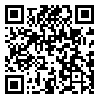1. Degenhardt L, Hall W. Extent of illicit drug use and dependence, and their contribution to the global burden of disease. Lancet. 2012;379(9810):55–70. [
DOI]
2. Muyanja Ssenyonga S. Domestic violence, codependency and drug abuse among adolescents [Ph.D Thesis]. [Kampala, Uganda]: Makerere University; 2020.
3. Sarkar S, Mattoo SK, Basu D, Gupta J. Codependence in spouses of alcohol and opioid dependent men. International Journal of Culture and Mental Health. 2015;8(1):13–21. [
DOI]
4. Nordgren J, Richert T, Svensson B, Johnson B. Say no and close the door? codependency troubles among parents of adult children with drug problems in Sweden. Journal of Family Issues. 2020;41(5):567–88. [
DOI]
5. Rahgozar F, Akrami N, Mehrabi H. Comparison of expressed emotion and coping styles with stress in 3 groups of patient with obsessive compulsive disorder and drug abuse disorder and relative and control group. Research in Cognitive and Behavioral Sciences. 2016;5(2):87–100. [Persian] [
Article]
6. Atintaş MC, Tutarel–Kışlak S. Comparison of the psychological symptoms and variables related to marriage in the wives of alcoholics and non-alcoholics and factors predicting marital adjustment. Turkish Journal on Addictions. 2019;6(3):745–75.
7. Alipour Z, Ahadi H, Hatami HR, Malihi-Alzakerini S. Structural equations of emotional self-regulation, behavioral activation/inhibition systems by mediating thinking styles in addicted patients’ psychological well-being. Scientific Quarterly Research on Addiction. 2018;12(47):245–68. [Persian] [
Article]
8. Pradika ID, Amin SM, Khabibah S. Relational thinking in problem solving mathematics based on adversity quotient and visual learning style. International Journal of Trends in Mathematics Education Research. 2019;2(4):161–4.
9. Zinali S, Khosrojavid M. Emotional intelligence and problem solving styles in drug addicts. Developmental Psychology. 2010;6(24):361–9. [Persian] [
Article]
10. Sharifi M, Javanmard GH. A comparative study of problem solving styles and mental health in male substance abusers and normal men. Psychology and Behavioral Sciences. 2017;6(3):36. [
DOI]
11. da Silva MP, Netto de Oliveira AM, da Silva PA, Algeri S, Flores Soares MC. Family orientation group as a strategy for care in chemical codependency. Invest Educ Enferm. 2019;37(3):e08. [
DOI]
12. Matinnejad SA, Mosavi SAM, Shams Esfandabad H. A Comparative study of problem solving styles and thinking styles among substance and non- substance abusers. Scientific Quarterly Research on Addiction. 2009;3(11):11–24. [Persian] [
Article]
13. Best D, Day E, Campbell A, Flynn PM, Simpson DD. Relationship between drug treatment engagement and criminal thinking style among drug-using offenders. Eur Addict Res. 2009;15(2):71–7. [
DOI]
14. Wahl K, Ertle A, Bohne A, Zurowski B, Kordon A. Relations between a ruminative thinking style and obsessive-compulsive symptoms in non-clinical samples. Anxiety Stress Coping. 2011;24(2):217–25. [
DOI]
15. Mehran Q, Kalantar Hormozi A, Farahbakhsh K. Comparing cognitive theory-based and solution-focused training methods on reducing the codependency of addicts’ wives. Journal of Applied Psychological Research. 2016;6(4):241–213. [
Article]
16. Walker KL, Kaniuka A, Sirois FM, Chang EC, Hirsch JK. Improving health-related quality of life and reducing suicide in primary care: can social problem–solving abilities help? Int J Ment Health Addiction. 2019;17(2):295–309. [
DOI]
17. Achtert E, Bohm C, Kriegel H-P, Kroger P, Zimek A. On exploring complex relationships of correlation clusters. In: 19th International Conference on Scientific and Statistical Database Management. Bamff, AB, Canada: IEEE; 2007. [
DOI]
18. Sternberg RJ, Wagner RK. Thinking Styles Inventory. Unpublished manual, Yale University; 1992.
19. Heppner PP, Petersen CH. The development and implications of a Personal Problem-Solving Inventory. Journal of Counseling Psychology. 1982;29(1):66–75. [
DOI]
20. Ghaltash A, Salehi M, Khodadadi M. Barrasi rabete maharat hal masala ba mizan sazegari danesh amoozan paye aval omoumi motevasete mantaghe be shagerd dar sal tahsili 1386–87 [The relationship between problem solving skills and the level of adaptation of first grade high school students in bashashard area in the school in year 2008–2009]. In: National Conference on Psychology and its Application in Society. Marvdasht, Iran: Islamic Azad University; 2008. [Persian]
21. Spann L, Fischer JL. Identifying codependency. The Counselor. 1990;8(27):27-31.
22. Fischer JL, Spann L. Measuring codependency. Alcoholism Treatment Quarterly. 1991;8(1):87–100. [
DOI]
23. Khosravi N, Panaghi L, Ahmad Abadi Z, Sadeghi M. Relationship between inefficiency of origin family and the interdependence of women: interfering role of university education. Journal of Applied Psychology. 2013;7(1):85–100. [Persian] [
Article]
24. Pazani F, Borjali PD, Ahadi PD, Kraskian Mujembari PD. A structural modeling analysis of the relationships among psychological factors influencing adolescents’ vulnerability to substance use with mediating role of codependency. Quarterly Journal of Family and Research. 2018;14(4):69–90. [Persian] [
Article]
25. Jessup CM. Applying psychological type and “gifts differing” to organizational change. Journal of Organizational Change Management. 2002;15(5):502–11. [
DOI]
26. Moriarty H, Stubbe M, Bradford S, Tapper S, Lim BT. Exploring resilience in families living with addiction. J Prim Health Care. 2011;3(3):210–7.

 ، بیوک تاجری*2
، بیوک تاجری*2 






